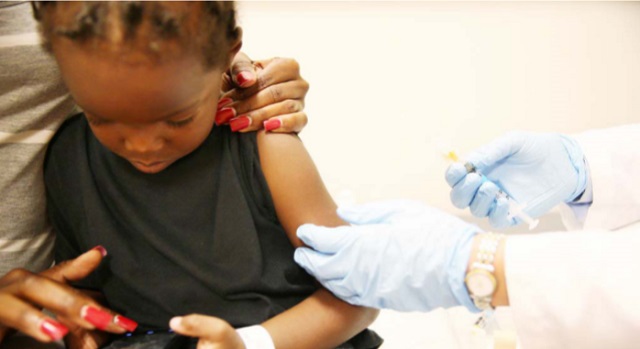
Kampala, Uganda | THE INDEPENDENT | The World Health Organisation-WHO has asked global health partners to contribute funds towards the control of measles outbreak in the Democratic Republic of Congo. The call for more funding follows the declaration of a measles outbreak in the country.
According to WHO, since the outbreak was declared, an estimated 310, 000 suspected measles cases have been reported, and at least, 6,000 deaths. Despite the high number of reported cases, efforts to curb the epidemic are being frustrated by lack of funding alongside poor infrastructure, attacks on health centres and a lack of access to routine healthcare.
So far, USD 27.6 million has been mobilized and used to vaccinate more than 18 million children under 5 years in DRC. However, in some areas, routine vaccination coverage remains low and 25 per cent of the reported measles cases come from such areas. Previous immunization campaigns have been targeting children under the age of five who are most affected by the disease.
Dr Matshidiso Moeti, the WHO Regional Director for Africa says that more funds are needed to curb the epidemic. A new plan targeting children aged six to 14 needs an additional USD 40 million to extend the vaccination for six-months.
“We are doing our utmost to bring this epidemic under control. Yet, to be truly successful, we must ensure that no child faces the unnecessary risk of death from a disease that is easily preventable by a vaccine. We urge our donor partners to urgently step up their assistance,” Dr Moeti said.
Measures to stop the spread of the disease in the DRC have been funded and carried out by the DRC Ministry of Health, WHO, Gavi, the Vaccine Alliance, and other partner aid agencies.
Dr Amédée Prosper Djiguimdé, the officer in charge of the WHO office in the DRC says that even if both government and donors have done a lot to control the epidemic, more support is needed.
“We recognize the Government’s engagement in the efforts to end the outbreak and we are grateful for the generosity of our donors. But we still need to do more. Thousands of Congolese families need our help to lift the burden of this prolonged epidemic from their backs. We cannot achieve this without adequate finances.” Dr Djiguimdé.
Last year Uganda carried out a mass Measles and Rubella vaccination campaign that targeted children aged between six months and 16 years of age. It is estimated that more than 19 million children were vaccinated in the campaign.
Dr Alfred Driwale, the manager of the Uganda Nation Expanded Program of Immunisation says that even if they managed to vaccinate a high number of children, with the on-going epidemic in DRC they are on the lookout.
“Last year we had an outbreak that led to the mass vaccination. Right now we don’t have new any cases of measles. All measles isolation wards have been closed but we cannot relax. Many Ugandans and Congolese enter Uganda on a daily basis and as such, we are on alert to handle any measles cases that might spring up,” Dr Driwale said.
According to WHO, the epidemic in DRC has been aggravated by low vaccination coverage among vulnerable communities, malnutrition, weak public health systems, outbreaks of other epidemic-prone diseases, difficult access by vulnerable populations to health care and insecurity that has hampered response in some areas.
******
URN
 The Independent Uganda: You get the Truth we Pay the Price
The Independent Uganda: You get the Truth we Pay the Price





